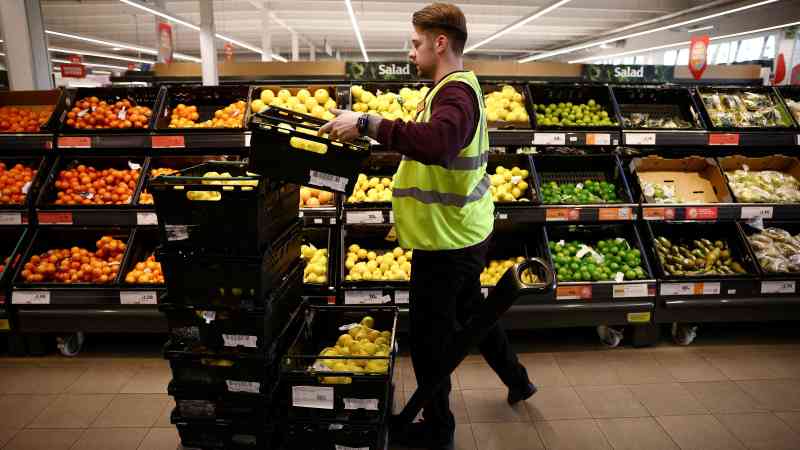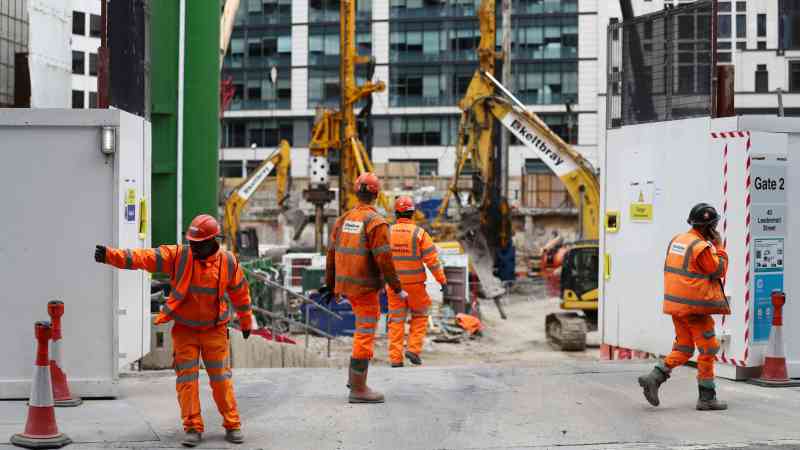Sainsbury’s expands with deal to buy ten Homebase stores
Sainsbury’s has struck a multimillion-pound deal to buy ten Homebase stores that it will convert into supermarkets.
Britain’s second largest grocer said the stores, which once converted would add 235,000 sq ft of trading space, were in “key target locations” that would extend its footprint across England, Northern Ireland and Scotland.
The gross investment value of the acquisition, set to be completed early next month, is expected to be £130 million.
The addition of the new stores, located in Sutton Coldfield, Bromsgrove, Cromer, Londonderry, Fareham, Inverurie, Lowestoft, Newark, Omagh and Rugby, would result in almost 400,000 more people being within a ten-minute drive from one of its supermarkets, the company said.
Sainsbury’s swoop comes after reports that Hilco Capital, which bought Homebase for £1 in 2018, is preparing to sell the troubled DIY and garden chain. The restructuring specialist is understood to have held discussions with several parties, including The Range and B&M European Value Retail, two rival retail groups.
“Sainsbury’s food business continues to go from strength to strength,” Simon Roberts, 53, the chief executive of Sainsbury’s, said. “We want to build on this momentum, which is why we are growing our supermarket footprint. Our ambition is to be customers’ first choice for food and these new stores will showcase some of the best that Sainsbury’s supermarkets have to offer to even more communities around the country.”
The FTSE 100 retail group, which has a UK market share of 15.3 per cent, trailing only Tesco, said it expected the new stores to “achieve strong returns, with return on capital employed in the low teens, comfortably in excess of Sainsbury’s cost of capital”.
The first of the converted stores is expected to open next summer, with all ten due to be converted by the end of 2025. The company operates more than 600 supermarkets and 800 convenience stores and receives nearly 250,000 online orders per week.
It said that the conversion of the properties would create about a thousand jobs and that it would guarantee an interview for any Homebase employees “who are placed at risk of redundancy” as a result of the closure of the DIY and home improvement stores.
The deal comes amid Sainsbury’s “food first” strategy to scale back its clothing and general merchandise divisions, which have struggled lately, by reducing their store space. It warned in March that it would cut about 1,500 roles as part of a plan to strip out £1 billion in costs over the next three years. The shake-up forms part of the grocer’s “next level” strategy, which aims to “right-size” the business and invest in creating more space for food in 180 of its shops by reallocating areas occupied by general merchandise and clothing.
Clive Black, a retail analyst at Shore Capital, a house broker, said he was “very impressed by the advancement of the Sainsbury’s grocery proposition under Simon Roberts’ tutelage, manifested in profit progress and share gains.
“Clean canvasses will allow Sainsbury to potentially advance further on these fronts, which could be exciting all round. While a bolt-on, we welcome this move, helping to augment medium-term earnings and cashflow forecasts, showing ambition to grow within the contexts of capital discipline and an aspiration to build returns.”
In the first quarter of its present financial year, Sainsbury’s reported a 2.7 per cent rise in like-for-like sales, compared with one of 9.8 per cent in the same period a year earlier. Its performance was dragged down by its Argos division, where sales dropped by 6.2 per cent. Grocery sales slipped to 4.8 per cent from 7.3 per cent in the previous three months as inflation eased across the market. Grocery sales had risen by 11 per cent in the first quarter of last year.
Shares in J Sainsbury rose by 1½p, or 0.5 per cent, to 290¼p.




Post Comment